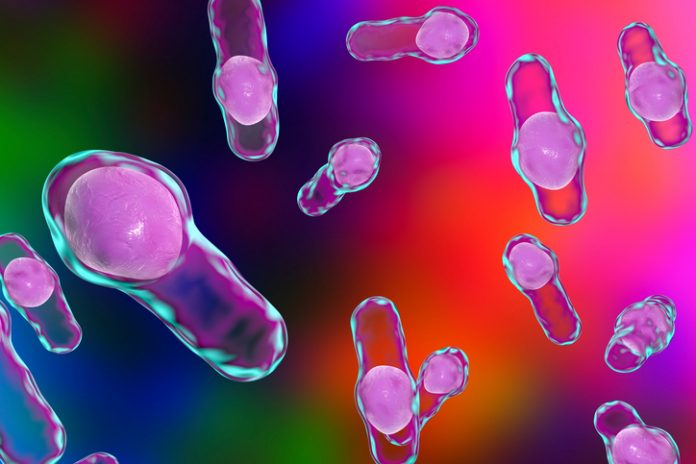
Researchers at the University of Nevada, Las Vegas (UNLV) have identified a compound that prevents gastrointestinal infections from multiple strains of Chlostridiodes difficile (C. diff)—including those that can cause serious illness—and are now using the compound to develop drugs that could eventually prevent serious C. diff infections.
“C. diff infection is quite a burden to the U.S. healthcare system, costing $3 billion to $4 billion annually,” said Jacqueline Phan, a chemistry doctoral student in the lab of Ernesto Abel–Santos, a biochemistry professor at (UNLV). “Our research aims to create a preventative drug that could be used to treat susceptible individuals before the infection starts, instead of treating patients only after they display signs of the infection.”
The success of C. diff at infecting people comes from its development of dormant spores that are able to survive on the surfaces within the gastrointestinal tract. Once they reach the intestinal lumen which is rich in nutrients, they germinate and become the cells that cause symptoms of the infection.
According to Able-Santos, his interest in this area was born from the anthrax attacks more than 20 years ago. Anthrax bacteria also forms similar to C. diff. “I started thinking about how these spores—which are basically specks of sand—detect their environment and start the germination process that returns them to a normal living organism. I realized that targeting the germination process could be a way to prevent infectious diseases such as C. diff,” she noted.
For their research, the team exploited the changes in optical properties C. diff exhibits when they begin to germinate. This allowed them to test hundreds of compounds by measuring the optical density of the spores after incubation with one of the compounds, as a method to search for compounds that might prevent germination. The investigators used a mouse model of C. diff infections to further evaluate candidate compounds that had inhibited spore gemination at very low concentrations. This identified the anilin-substituted bile salt analog CaPA as the best candidate molecule.
While identifying the effects of CaPA is important, it has the limitation of being used itself as a preventative therapeutic, since it doesn’t survive long enough in the gut environment to be used this way. To overcome this, the researchers developed compounds that are similar to CaPA but are more stable in that environment, and are currently evaluating how the liver modulates different dosages of the new compounds that affect the gut microbiota.
“This is something that has not been studied before,” said Abel-Santos. “It might be possible to use the patient’s own liver as part of the treatment plan.”
In addition to identifying potential compounds for the prevention of C. diff infection, the investigators also noted that both diet and the estrous cycle in females correlated with the severity of infection. Continuing work with mouse models will also focus on how diet can affect gut microbiota and how the estrous cycle may modulate C. diff infection outcomes.













